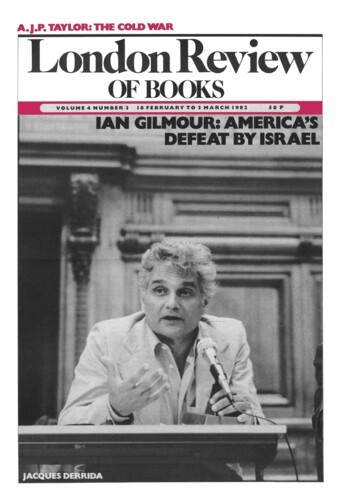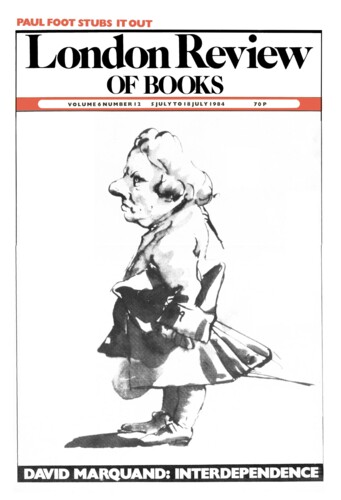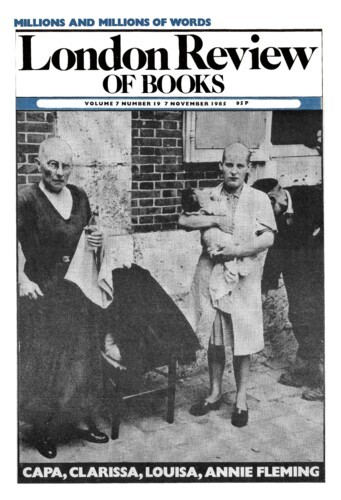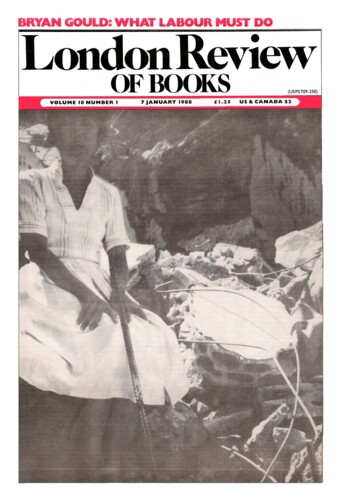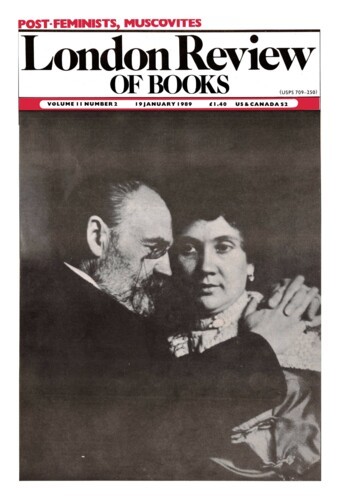Doctors’ Orders
Ruth Bernard Yeazell, 18 February 1982
In the summer following the death of Leslie Stephen in 1904, his daughter Virginia lay in bed, listening to the birds singing in Greek and imagining King Edward lurking naked in the azaleas, shouting obscenities; that same summer she apparently attempted to kill herself by leaping out of the window. ‘I have never spent such a wretched 8 months in my life,’ she wrote to a friend when the crisis had passed.
